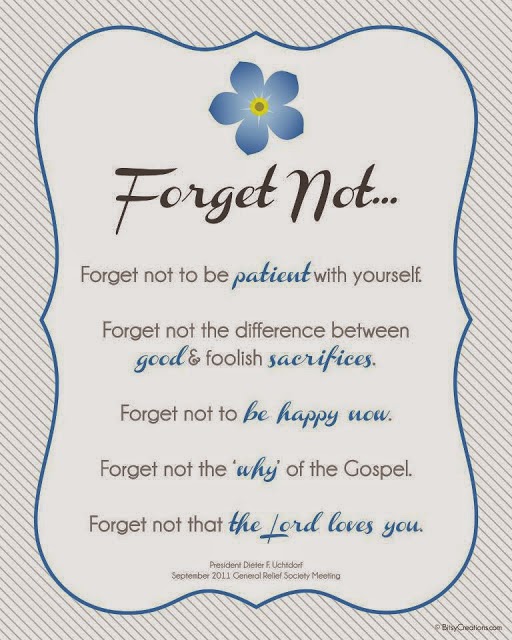So I had this experience today that got me thinking a lot about compassion. Thank goodness I was home (and let me tell you that is rare) when Comed (our electricity company) knocked on my door and pushed past me while announcing they were turning off my electricity. I exclaimed why --the shouted as the proceeded to our meter --that I would have to call Comed to find out why -but that they were instructed to turn it off. I called Comed who said it was because we had not paid our Comed bill since October. I insisted that was not true --as we have it set up for Automatic payment plan. They looked and saw that that was true -but that there had been a mix up and they had not been taking any $ out since October. I asked why they had not alerted us of the problem long before this had happened. They announced that they had called us twice. I asked what number they had called and they gave me some phone # I had never heard of. It all worked out -I made the guy wait even though he kept exclaiming that he "never does that --and that I was lucky".....(treating me like I was low life scum trying to get out of paying bills) ......that "normally he would just leave and I would have to live without electricity until they came back and turned it on." They did not end up turning it off, but I have to say it gave me some insight on how people can be treated....and it is not good. There needs to be more compassion in our world. What if I really had not payed the bills and it was because of some life event like my husband loosing a job. They could have been much kinder. We never really know what another person is going through!! In this case I was fine and it was a mix up, but I can imagine how humiliated and shamed I could have felt if that was not the case. It made me think of this wonderful video. Take a look.
So what does this have to do with your healing.... a couple of things. It has been found that those who are more compassionate to themselves are also more compassionate with others. So once again compassion starts with yourself.
With compassion we create a caring space that is free of judgment—a place that softens hurt and failure with kindness and caring.Why then is it easier for some to see others through compassionate eyes and yet not do the same for themselves? The answer to that question would take a whole book to explain and I am not going to address it here. But here is my challenge today --Practice compassion, whether it is for yourself or others. It is something that gets better with practice. Now remember compassion is not excusing behavior or allowing people to walk all over you. The definition of compassion is instead "a deep awareness of the suffering of another coupled with the wish to relieve it."
Bobbi Emel in her blog tinybuddha shared 4 myths about self-Compassion.
1. I’m just indulging myself if I’m self-compassionate.
Self-compassion involves your health and well-being. Self-indulgence is about getting anything and everything you want without thoughts of well-being. Self-compassion is about becoming aware of and sitting with your pain. Self-indulgence numbs and denies your pain.2. I won’t be motivated if I don’t criticize myself.
Somewhere, deep down, you and I might actually believe that we need that inner critic to keep us motivated in life; that without it, we too easily stray outside the lines.And it’s also possible that the critic evolved to help keep us safe from harm.
But guess what? We don’t need it anymore. Being compassionate with ourselves allows for a much healthier, kinder motivation. As Kristin Neff says, “While the motivational power of self-criticism comes from fear of self-punishment, the motivational power of self-compassion comes from the desire to be healthy, to reduce our suffering.”
3. It’s selfish for me to be compassionate toward myself.
Many people, women especially, are taught to put others ahead of themselves. Self-compassion can seem like the opposite of what you “should” be doing: taking care of others.But how will beating yourself up help you be kinder to others? The source of our compassion will only be more authentic when we are able to show compassion to ourselves first.4. Self-compassion is for wimps.
Our society tends to reward toughing things out more than it does being kind and nurturing to yourself.But the truth is that the strongest people are also the ones who can buck cultural norms and feel genuine compassion for themselves and their circumstances."http://tinybuddha.com/blog/self-compassion-learning-to-be-nicer-to-ourselves/




![“The gospel of Jesus Christ is not a checklist of things to do; rather, it can live in our hearts. [It] is not weight; it is wings. It carries us.” –Sister Jean A. Stevens (from her inspiring April 2014 general conference http://facebook.com/pages/General-Conference-of-The-Church-of-Jesus-Christ-of-Latter-day-Saints/223271487682878 message). Enjoy more about Jesus Christ http://facebook.com/pages/The-Lord-Jesus-Christ/173301249409767 and how His restored gospel can bless your daily life.](http://media-cache-ak0.pinimg.com/736x/ce/ef/db/ceefdbaf584e80d643c8b1f30f4e8aed.jpg)

